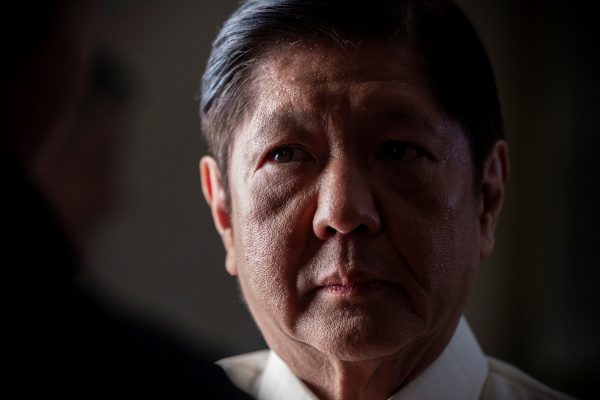The Philippines is often portrayed as one of the world’s most important battlegrounds against disinformation. Many observers have attributed the back-to-back electoral victories of strongman Rodrigo Duterte in 2016 and Ferdinand Marcos Jr, the son of late dictator Ferdinand Marcos, in 2022 as outcomes of systematic disinformation and historical revisionism, which distorted the will of Filipino voters.
Recent survey results have shown that 70 per cent of Filipinos consider fake news and its spread online as a serious problem while 51 per cent find it difficult to identify fake news on television, radio or social media.
Civil society groups, journalists and donor agencies have launched various initiatives to combat disinformation. Among the most popular are fact-checking initiatives and digital literacy campaigns, which seek to address deficits in information by giving the public access to credible news reports and building their capacities to tell truth from lies.
These initiatives are valuable, but they are not enough. Successful battles win hearts and minds. Fact-checking and digital literacy campaigns can win minds, but we need imaginative and compelling stories to win hearts.
Research has shown that belief in false information is not just driven by cognitive failures but also by emotional factors. These findings resonate with our own work in the Philippines. In the past year, we have been monitoring the nature of revisionist narratives that boost the image of the Marcos family. Marcos Jr’s stunning electoral victory was anchored on an ‘artful political narrative’ that depicted the Marcos family as victims of history defined by the country’s liberal political elite and deserving of reclaiming their rightful place — the Malacañang Palace.
Similarly, Rodrigo Duterte’s campaign strategy cannot simply be reduced to voters being fed incorrect statistics about crime and drug use — he importantly appealed to people’s longstanding latent anxieties about their family’s security.
The Marcos and Duterte camps have been successful in advancing compelling narratives for their political gain. But these narratives are not necessarily durable. As media studies scholar Jason Cabanes and historian Fernando Santiago put it, counter-disinformation efforts can ‘turn disinformation campaigns on their head by turning their own strategies against them’.
Creative sector initiatives have the potential to destabilise the dominant storylines that legitimise Duterte’s drug war and the Marcoses’ historical revisionism by prompting reflection, initiating conversation and building empathy among Filipinos.
‘Potential’ is the keyword in our findings. Film screenings, avatars and hip-hop are some art forms that can forge an emotional connection between politically charged content and people’s everyday experiences. But these initiatives need to be scaled up. Compared to influence operations that seed conspiracy theories and misleading news reports, the creative sector’s efforts are often underfunded and limited in reach.
Artist collectives, for example, regularly hold film screenings on human rights. Many of these films give voice and visibility to ordinary Filipinos who survived state-sponsored violence during the Marcos dictatorship. Shorter versions of these films are uploaded on YouTube, such as the story of catechists whose families were murdered by the military because they were accused of being communist sympathisers. These art forms contest the narrative peddled by YouTube influencers that the Marcoses’ ouster from power was a case of infighting among elites, positioning it instead as one that was driven by ordinary people’s desire for freedom and justice.
Compelling as this narrative may be, these films and YouTube clips are in direct competition with cultural products that make the Marcoses relatable. Viral TikTok videos portray Marcos Jr’s children as heartthrobs while light-hearted films like Maid in Malacanang effectively distance the Marcoses from the brutality associated with the dictatorship. This relatable content is part of long-term efforts meant to engage in historical denialism.
The creative sector is confronted with the daunting task of sustaining the struggle against disinformation actors, while enacting concerted truth-telling initiatives that cater to wider audiences and broadening spaces for critical reflection.
More work needs to be done to realise the potential of the creative sector as a frontline in the fight against disinformation. To do this, it is necessary to learn from the ‘success stories’ of disinformation narratives — what makes them compelling and relatable?
Approaches do not need to be universal. While human rights organisations employ different strategies in addressing state abuses, groups can work with artists to explore campaigns that use humour and creativity to deliver messages that are more engaging to the public.
Anti-disinformation programs also need to better integrate the work of content creators, influencers, artists, comedians and filmmakers when designing and implementing programs. Facts need to speak to the soul. For this to happen, the Philippines’ ‘anti-disinformation community’ needs to place artists at the forefront of programs designed to fight disinformation.
Juan Felix is Program Manager for Research and Social Analysis of Active Vista Center Inc., the learning center of DAKILA — Philippine Collective for Modern Heroism.
Ferdinand Sanchez II is Research Assistant at the Centre for Deliberative Democracy and Global Governance, the University of Canberra.
Nicole Curato is Professor of Political Sociology at the Centre for Deliberative Democracy and Global Governance, the University of Canberra.
This piece is based on a collaborative research project funded by Internews under the Six-Track Engagement Against Disinformation Initiative (STEAD-i). Monitoring of disinformation narratives was based on reports lodged on TotooBa.info. This piece does not reflect the views of Internews.

